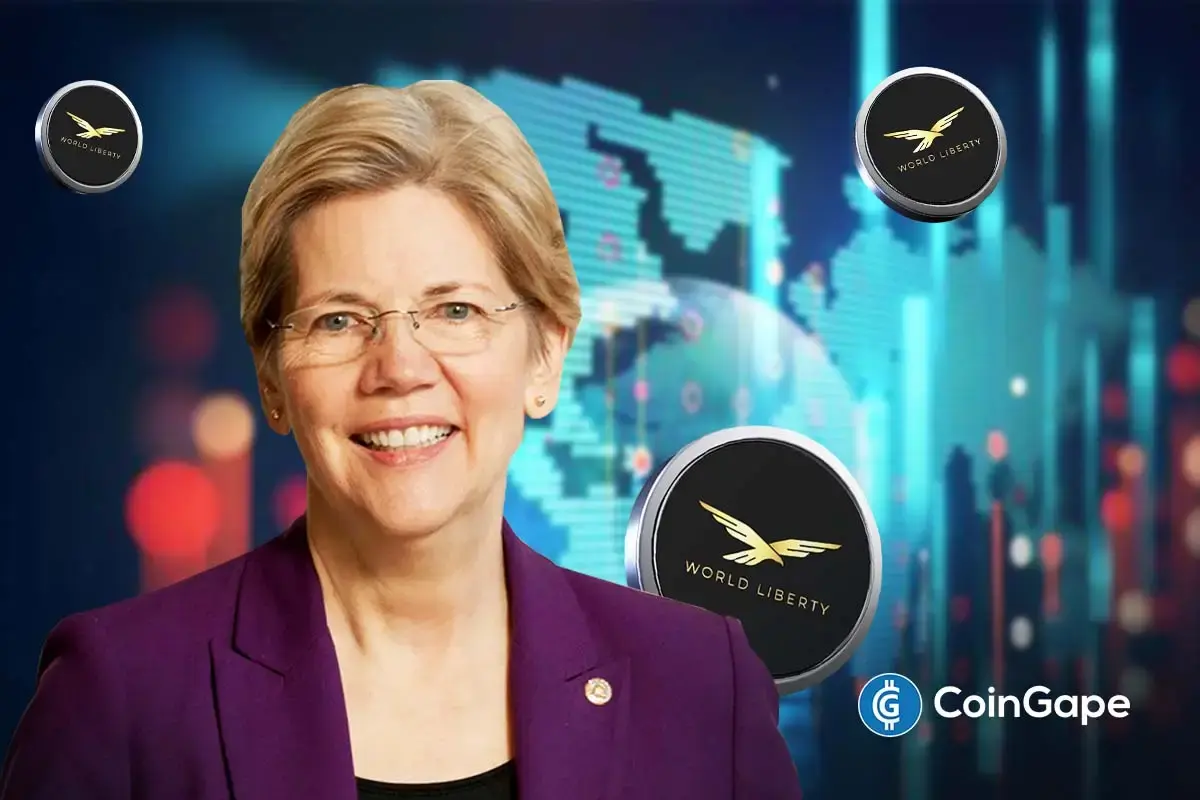Senator Elizabeth Warren Questions Crypto Lobby on Terror Financing

Senator Elizabeth Warren expressed strong concerns regarding the lobbying efforts by cryptocurrency groups. These efforts are seen as potential hindrances to legislative measures aimed at curbing the use of cryptocurrencies in financing terrorist organizations such as Hamas.
Elizabeth Warren Stance on Crypto and National Security
In her communication to leading crypto lobbying groups such as the Blockchain Association, Coin Center, and Coinbase, Senator Warren highlighted a report suggesting that these groups are actively working to undermine bipartisan efforts. These efforts, both in Congress and the Biden Administration, are focused on addressing the issue of cryptocurrencies being used to finance terrorist organizations. Warren’s stance reflects a growing concern among lawmakers about the security implications of cryptocurrency usage in illegal activities, including terrorism financing.
The Senator cited a report by the Wall Street Journal, which alleges extensive funding of terrorist groups through cryptocurrencies. However, this claim has been contested by blockchain analytics firms, which argue that the actual amount is significantly lower than reported. Despite these contestations, the issue remains a focal point in the debate over regulating digital currencies.
Industry’s Response and Revolving Door Allegations
In response to Senator Warren’s allegations, Coin Center issued a statement defending their actions as an exercise of the fundamental right to associate and petition the government freely. The organization emphasized that their advocacy efforts should not be seen as questionable but as part of the democratic process.
Senator Warren, however, raised additional concerns regarding the ‘revolving door’ phenomenon in the cryptocurrency industry. She requested detailed information on cryptocurrency firms’ employment of former government officials. This inquiry aligns with broader worries about former public officials potentially leveraging their experience and connections to influence legislation and regulatory activities in favour of private-sector interests, specifically in areas related to cryptocurrency, anti-money laundering, and terrorist financing.
A study from Public Citizen in 2019 revealed that nearly two-thirds of former members of the 115th U.S. Congress, which concluded in January 2019, engaged in activities outside politics, with many influencing federal policy through lobbying or consulting. This statistic underscores the prevalence of the ‘revolving door’ phenomenon in American politics and its potential implications for policy-making, particularly in emerging and rapidly evolving sectors like cryptocurrency.
Read Also: Judge Halts DCG’s Ownership Change in Genesis Bankruptcy Case
Play 10,000+ Casino Games at BC Game with Ease
- Instant Deposits And Withdrawals
- Crypto Casino And Sports Betting
- Exclusive Bonuses And Rewards

- CFTC Chief Mike Selig Signals US Crypto Perpetual Futures Rollout in Coming Weeks
- Fed Rate Cut Odds Drop as Inflation Fears Rise Due To U.S. Iran Conflict
- Here’s Why Tether Gold (XAUt) Price Is Falling Even With Growing Gold Demand
- XRP News: Ripple Expands Payments Platform To Unify Fiat and Stablecoins Globally
- U.S.–Iran War: Bitcoin Price Extends Decline as Oil Prices Surge To Two-Year High
- Gold Price Prediction March 2026: Rally, Crash, or Record Highs?
- RIOT Stock Prediction as Needham, Piper Sandler Slash Target After Earnings
- Cardano Price Outlook As Charles Hoskinson Warns Over CLARITY Act
- Circle Stock Price Climbs 15% to $96, Can Rally Continue in March 2026?
- Bitcoin Price Prediction as US-Iran War Enters 4th Consecutive Day
- Top 5 Historical Reasons Dogecoin Price Is Not Rising

 Buy $GGs
Buy $GGs

















